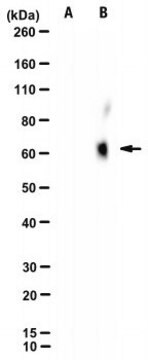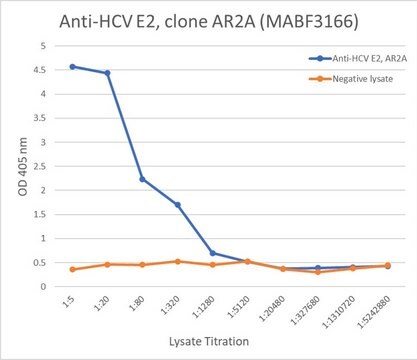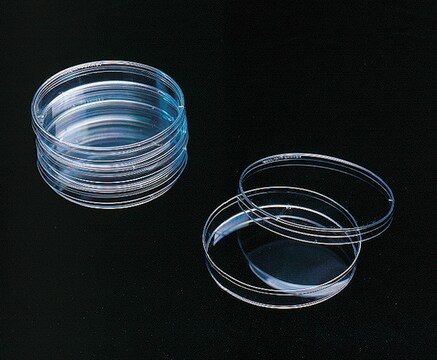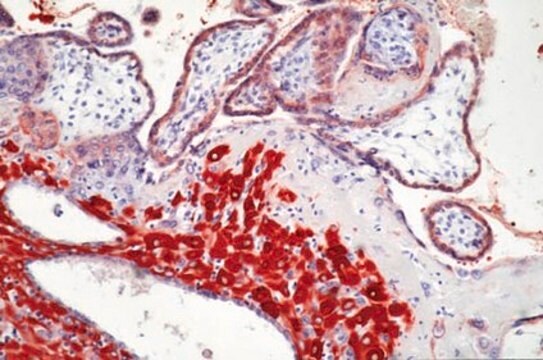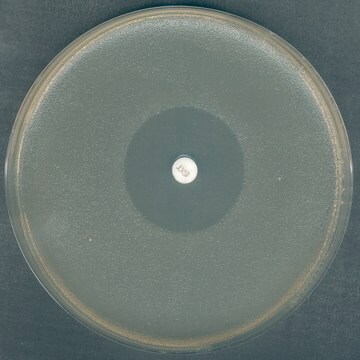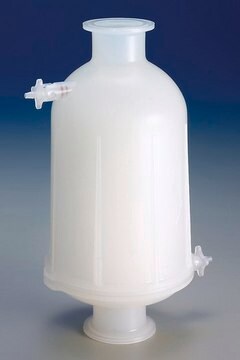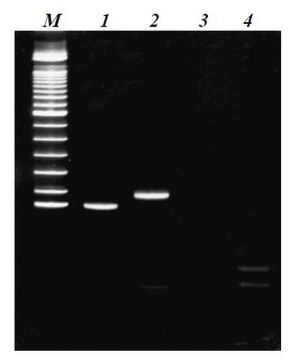MABF3165
Anti-HCV E1E2 Antibody, clone AR4A
Sinonimo/i:
Genome polyprotein;Envelope glycoprotein E1E2
About This Item
Prodotti consigliati
Origine biologica
human
Livello qualitativo
Forma dell’anticorpo
purified antibody
Tipo di anticorpo
primary antibodies
Clone
AR4A, monoclonal
PM
calculated mol wt 327.15 kDa
Purificato mediante
using protein G
Reattività contro le specie
virus
Confezionamento
antibody small pack of 100 μg
tecniche
ELISA: suitable
immunoprecipitation (IP): suitable
neutralization: suitable
Isotipo
IgG1
Sequenza dell’epitopo
N-terminal half
N° accesso ID proteina
N° accesso UniProt
Temperatura di conservazione
-10 to -25°C
modifica post-traduzionali bersaglio
unmodified
Informazioni sul gene
vaccinia virus ... E2(684)
Categorie correlate
Descrizione generale
Specificità
Immunogeno
Applicazioni
Evaluated by ELISA in lysate from HEK293T cells transfected with H77E1E2.
ELISA Analysis (ELISA): Envelope glycoprotein E1E2 was detected by ELISA in various dilutions of lysates from HEK293T cells transfected with H77E1E2, but not in lysate from untransfected cells.
Tested Applications
ELISA Analysis: A representative lot detected HCV E1E2 in ELISA applications (Giang, E., et al. (2012). Proc Natl Acad Sci USA. 109(16):6205-10).
Immunoprecipitation Analysis: A representative lot immunoprecipitated HCV E1E2 in Immunoprecipitation applications (Giang, E., et al. (2012). Proc Natl Acad Sci USA. 109(16):6205-10).
Neutralizing: A representative lot of this antibody neutralized several HCV isolates (Giang, E., et al. (2012). Proc. Natl. Acad. Sci. USA. 109(16):6205-10).
Note: Actual optimal working dilutions must be determined by end user as specimens, and experimental conditions may vary with the end user.
Stato fisico
Ricostituzione
Stoccaggio e stabilità
Altre note
Esclusione di responsabilità
Non trovi il prodotto giusto?
Prova il nostro Motore di ricerca dei prodotti.
Codice della classe di stoccaggio
12 - Non Combustible Liquids
Classe di pericolosità dell'acqua (WGK)
WGK 2
Punto d’infiammabilità (°F)
Not applicable
Punto d’infiammabilità (°C)
Not applicable
Certificati d'analisi (COA)
Cerca il Certificati d'analisi (COA) digitando il numero di lotto/batch corrispondente. I numeri di lotto o di batch sono stampati sull'etichetta dei prodotti dopo la parola ‘Lotto’ o ‘Batch’.
Possiedi già questo prodotto?
I documenti relativi ai prodotti acquistati recentemente sono disponibili nell’Archivio dei documenti.
Il team dei nostri ricercatori vanta grande esperienza in tutte le aree della ricerca quali Life Science, scienza dei materiali, sintesi chimica, cromatografia, discipline analitiche, ecc..
Contatta l'Assistenza Tecnica.